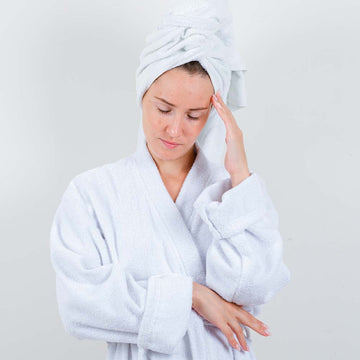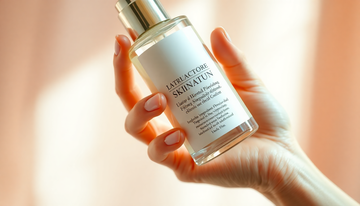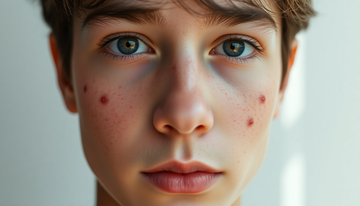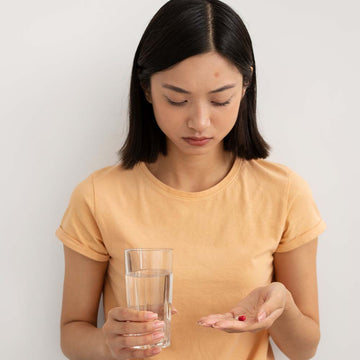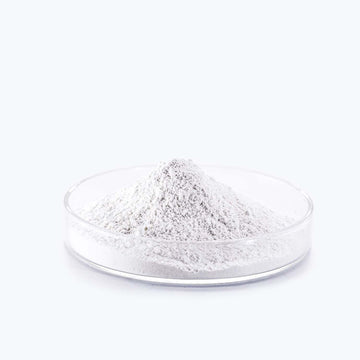Stress, an inescapable facet of life, not only impacts mental well-being but also extends its reach to skin health, significantly influencing the development and exacerbation of acne. This blog aims to unravel the intricate relationship between stress and acne, offering insights into effective management strategies for fostering healthier, clearer skin.
Exploring the prevalence of acne reveals that 85 percent of individuals will grapple with some form of it during their lifetime, according to trusted sources. For some, acne manifests as one or two minor bumps, while for others, it takes an extreme form, potentially leading to scarring. Acne commonly emerges on the face, back, neck, and shoulders, with its occurrence spanning beyond the teenage years to affect individuals at any age.
1. The Impact of Stress on Acne
Contrary to common misconceptions, stress doesn't directly cause acne. However, studies from trusted sources emphasize that stress worsens existing acne. Stress induces a slower healing process for wounds, including acne, underlining the persistence and increased severity of pimples during a breakout. The prolonged healing time also means more visible acne simultaneously.
2. Unraveling the Causes of Acne
Understanding acne requires examining the culprits, which include excess oils, dead skin cells, bacteria, and sometimes hair blocking pores. The exact cause remains elusive, but hormonal fluctuations during pregnancy and adolescence, certain medications like birth control pills, and a family history of acne are considered contributing factors.
3. The Biological Link
At the core of the stress-acne connection lies the intricate interplay of hormones. Stress prompts the release of cortisol, known as the "stress hormone," which, in turn, stimulates the sebaceous glands to produce more oil. This excess oil, combined with dead skin cells, creates an environment conducive to the development of acne-causing bacteria.
4. Acne Flare-Ups During Stressful Times
Many individuals have experienced sudden breakouts during periods of high stress. Stressful events, whether short-term or chronic, can trigger or intensify acne, especially in those with an underlying predisposition to skin issues.
5. Breaking the Cycle: Managing Stress for Clearer Skin
1.Mindfulness and Relaxation Techniques: Integrate mindfulness practices such as meditation, deep breathing, or yoga into your routine to effectively manage stress levels.2.Regular Exercise: Engage in physical activity not only to reduce stress but also to improve blood circulation, promoting healthier skin.
3.Adequate Sleep: Prioritize quality sleep to facilitate body and skin recovery, as insufficient sleep can exacerbate stress and worsen existing acne.
4.Healthy Lifestyle Choices: Maintain a balanced diet, stay hydrated, and limit the intake of stimulants like caffeine and alcohol. These choices positively impact stress levels and, consequently, your skin.
6. Skincare Tips During Stressful Times
1.Gentle Cleansing: Use a mild, non-comedogenic gentle cleansersto keep your skin clean without stripping it of essential moisture.
2.Hydration: Keep your skin hydrated with a suitable moisturizer, even if you have oily skin, preventing overcompensation in oil production.
3.Spot Treatments: Consider targeted treatments with ingredients like salicylic acid or benzoyl peroxide to address acne breakouts during stressful periods.
7. Consulting a Dermatologist
In cases of persistent or severe stress-related acne, seeking professional help is imperative. Dermatologists can provide personalized advice, prescribe medications, or recommend specialized treatments to effectively address both stress and acne issues.
8. Conclusion
Empowering individuals with an understanding of the stress-acne connection allows them to proactively manage both aspects of well-being. By incorporating stress management techniques and adopting a skin-friendly routine, navigating stressful times becomes more manageable, ultimately leading to clearer, healthier skin.To know more click here.
FAQ "Frequently Asked Questions."
1. How does stress contribute to acne development?
Stress doesn't directly cause acne, but it can exacerbate existing conditions. Elevated stress levels may lead to hormonal changes that stimulate sebaceous glands to produce more oil, creating an environment conducive to acne development.
2. Can stress cause sudden acne flare-ups?
Yes, periods of high stress, whether short-term or chronic, can trigger or intensify acne flare-ups. Stressful events may impact individuals, especially those with an underlying predisposition to skin issues, leading to sudden breakouts.
3. What lifestyle choices can help manage stress-related acne?
Maintaining a balanced diet, staying hydrated, limiting stimulants like caffeine and alcohol, and incorporating stress management techniques such as mindfulness, exercise, and adequate sleep can positively impact stress levels and, consequently, skin health.
4. Are there specific skincare tips for managing acne during stressful times?Gentle cleansing with a mild, non-comedogenic cleanser, proper hydration using a suitable moisturizer, and targeted spot treatments with ingredients like salicylic acid or benzoyl peroxide can address acne breakouts during stressful periods.
5. When should I consult a dermatologist for stress-related acne?
If stress-related acne persists or becomes severe, seeking professional help is crucial. Dermatologists can provide personalized advice, prescribe medications, or recommend specialized treatments to effectively address both stress and acne issues.
6. Can hormonal fluctuations during pregnancy contribute to acne?
Yes, hormonal changes during pregnancy, characterized by increased levels of certain hormones, can contribute to acne development. Understanding these hormonal fluctuations is crucial for managing and preventing pregnancy-related acne.
